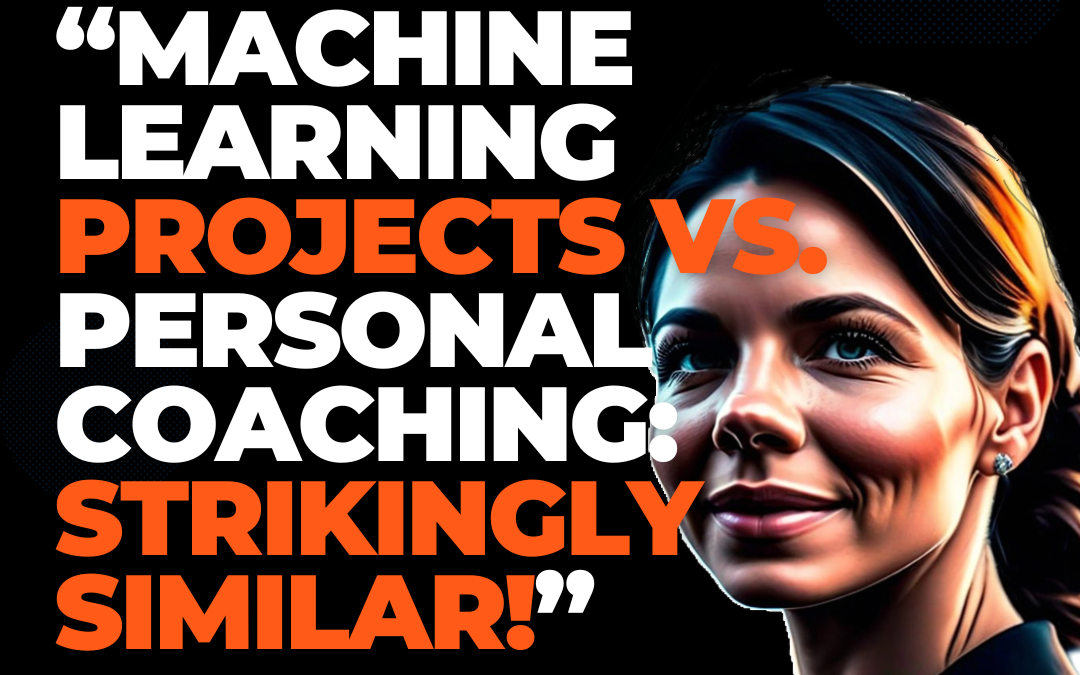
Discovering Common Ground: Exploring the Unexpected Links Between Machine Learning Projects and Coaching Processes | #6
Hello there! Today, I am going to delve into an intriguing comparison that might initially seem far-fetched: the striking similarities between the stages of machine learning projects and the personal coaching process.
As someone who loves learning through parallels, I’ve discovered that drawing connections between familiar concepts and new ones can significantly enhance understanding. So, let’s embark on a journey to uncover the commonalities between a machine learning project and the transformative process of coaching.
Machine Learning (ML) Stages vs. Coaching Process
1. Problem Formation and Understanding
In machine learning, the journey begins with framing the problem to solve. Similarly, a coaching session starts with identifying the issue at hand. As a coach, guiding clients towards a deeper understanding often reveals that what seemed to be the problem (‘Problem A’) might actually be something else (‘Problem B’). This stage is crucial – without a clear analysis, progress is limited.
In machine learning, you’d also set success metrics. For instance, a real estate website using machine learning might aim for homes to sell 20% faster. In coaching, success can be measured by a variety of milestones, including but not limited to: skill development (the coachee can identify and develop new skills that are relevant to their career goals) or a better work-life balance: the coachee can achieve a better work-life balance, which can lead to increased job satisfaction and overall well-being.
Both fields require clear goals and success metrics to ensure everyone is working towards the same objectives.
2. Data Collection and Preparation
Machine learning involves extensive data collection and preparation, including handling outliers and feature engineering. In coaching, this phase resembles creating a ‘reality map’ with the client. It involves asking open questions to gather insights and increase awareness, setting the stage for planning and implementing real-life changes.
By bypassing this stage, we aim for failure, whether it’s in an ML project or applying a transformation in human life. Collection of data and preparation is key.
3. Model Training, Testing, and Validation
Training an ML model involves feeding it data to learn and discover patterns, iteratively fine-tuning until a well-performing model emerges. Similarly, in coaching, we test and collect feedback, embracing mistakes and drawing conclusions. It’s about finding patterns and turning them into actionable plans.
Validation in machine learning tests the model on new data. In coaching, validation might look like applying learned behaviors in new situations to see if they hold up – a critical step in the transformation process. This stage is about ensuring readiness for broader application.
4. Model Deployment and Maintenance
Finally, in machine learning, once the model passes testing and validation, it enters the deployment and maintenance phase. This involves regular retraining and performance monitoring. Similarly, in coaching, applying changes in real life is just the beginning. As new external inputs come in, your approach might evolve. It’s a continuous journey of growth and adaptation.
It’s important to note that not every problem requires a machine learning application or coaching. Sometimes, a simple conversation with a friend, self-reflection or a quick fix of ineffective processes can be the key.
In conclusion, whether we’re talking about algorithms or human transformation, the processes have more in common than one might think. Whether we’re programming computers or coaching minds, the fundamentals of problem-solving remain strikingly similar. We define, gather, train, test, apply, and maintain. As a coach and AI enthusiast, I find these parallels not just fascinating, but also incredibly inspiring. They remind us that at the core of innovation and personal growth lies a universal truth – the journey of learning, adapting, and evolving.
I hope this exploration has provided you with valuable insights and inspiration. For more on this topic, subscribe to my newsletter

Recent Comments